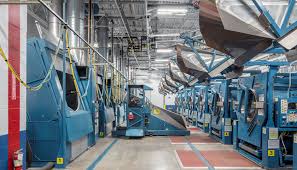The Red Shop Towel
The Red Shop Towel
Mechanic Shop Towel
The red shop towel could there be any other more tangible workday product that has so much history?
Think about it for a minute. How many of you could go back through family scrapbooks or photos and see a picture of your Granddad, Dad, Uncle, or even an Aunt standing out by the car under the old shade tree and at least someone if not all of them has a red shop towel dangling from their rear left pocket or stuffed in the front right pocket?
Maybe you have photos of a family member who has served or is serving in the Military. Again, who has seen some of the best photos of our service members men and women leaned up against the front of an old jeep Willys or the modern-day Humvee!
There is no denying that the red shop towel is a physical metaphor for the backbone of hard-working people across this world. What makes it so special? Who needs it? How many do you need? How to dispose of properly.
So, what makes it so special?
1. It is 100% cotton, this means it is great for absorbing oils and greases.
2. Various sizes available, 14x17 is pretty much the standard but oversize’s are available in 18x18.
3. They’re durable
4. They don’t cost much so you get exceptional value
5. You can pack them and take a handful anywhere. Toolbox, behind the seat, roadside kit, etc.
Who needs it?
1. Automotive repair shops
2. Quick Lubes
3. Automotive body shops
4. Machine shops
5. Marine repair
6. Manufacturing
These are just a few examples but they’re so versatile several places could be listed.
How many do you need? I use a very simple formula ten towels per person per day + 10%. If I had an automotive shop that had five mechanics our need would be:
10 (towels pp) x 5 (users) = 50 (per day) x 5 (days worked) = 250 (weekly total) x 10% (buffer) = 275 towels.
Now that we have established the what, who, and how! We must talk about the disposal.
Shop towels are exposed to a lot of different solvents, cleaners, oils, and greases. It is my recommendation that if you are not using fire can then get one to store your dirty towels in.
Also, never ever place a saturated or dripping towel in the dirty towel bin. If possible, wring it out and let it air dry before putting it in the dirty towel bin. Combustion could possibly occur.
Also, never ever place a saturated or dripping towel in the dirty towel bin. If possible, wring it out and let it air dry before putting it in the dirty towel bin. Combustion could possibly occur.
So, what is right for you? Rental or purchase? The answer to that question can only be determined when we go through an evaluation and have a conversation. There are cost variables that come in to play such as
a. Initial cost
b. Replacement cost
c. Disposal cost
d. Cleaning cost
when purchasing vs. rental where there is no initial cost, but you will have:
a. Rental cost (fraction of initial cost).
b. Replacement
c. Delivery
This is where it is important that you as the “customer” get with me your “expert” and together we will evaluate what is in the best interest of your business by designing a functional, economical, and accurate program that is right for you.
Visit www.theuniformbroker.com


Comments
Post a Comment